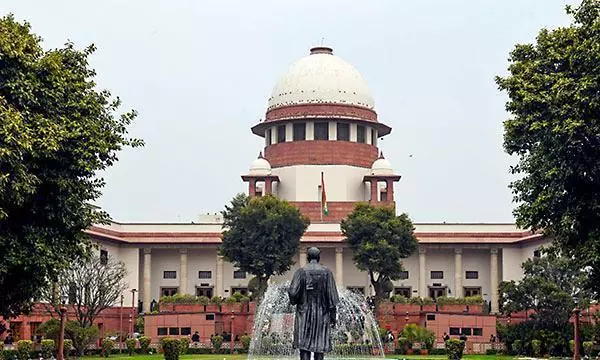
Governors, President can’t sit on bills indefinitely but timelines can’t be fixed: SC
Supreme Court in advisory opinion rejects 'deemed assent' and strict deadlines but says action must be within 'reasonable time'

In an advisory opinion issued on Thursday (November 20), the Supreme Court held that while the President and Governors cannot indefinitely delay action on bills, constitutional courts cannot impose rigid, judicially enforceable timelines for them to grant assent.
The apex court also ruled out the concept of “deemed assent” if timelines are breached, stating that drawing timelines for constitutional functionaries like the Governor and President would be antithetical to the doctrine of separation of powers and the “elasticity” provided by the Constitution.
However, despite rejecting fixed timelines, the apex court maintained that Governors and the President cannot sit over bills endlessly and must act within a “reasonable time”.
Unanimous decision
The five-judge Constitution Bench headed by Chief Justice BR Gavai unanimously held that it would be against the interest of federalism if the governor, without following due process under Article 200 (power to governor to provide assent to bills passed by assembly), is allowed to withhold bills.
The Bench, also comprising Justices Surya Kant, Vikram Nath, PS Narasimha and AS Chandurkar, said, “We don’t think governors have unfettered power to sit over bills passed by state assemblies.”
Also read: RN Ravi refutes DMK's claim on delaying assent to bills; releases data
But if there is “unexplained and prolonged” inaction that frustrates the legislative process, courts can exercise a limited power of judicial review to direct the constitutional authority to make a decision in a time-bound manner, without commenting on the bill’s merits, the court said.
Governor's options
The Supreme Court clarified that a Governor has three, and only three, constitutional options:
First, grant assent.
Also read: Stalin, Ravi lock horns over TN govt’s ‘fight’ slogan, Guv’s holdback of varsity Bill
Second, withhold assent and return the bill with reasons for the legislature’s reconsideration. This initiates a “conversation” between the Governor and the legislature.
Third, reserve the bill for the President’s consideration. The Governor cannot simply “withhold assent simpliciter” without any communication or “bury it in Raj Bhavan”.
Once a bill is returned and re-passed by the state legislature, the Governor is generally bound to give assent, except in specific cases where the Constitution mandates reservation for the President.
Also read: Governor can't examine a bill's legislative competence: Bengal govt to SC
The advisory opinion came in response to a Presidential Reference made by President Droupadi Murmu under Article 143 of the Constitution. This followed an April 2025 Supreme Court judgment in the State of Tamil Nadu vs Governor of Tamil Nadu case, where a two-judge bench, using Article 142 powers, had prescribed specific timelines (one and three months) for gubernatorial and presidential assent and had even granted “deemed assent” to 10 pending Tamil Nadu bills.

